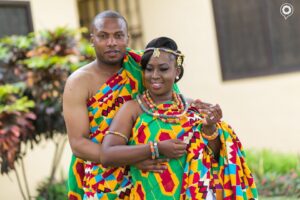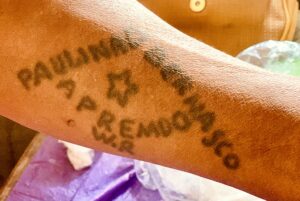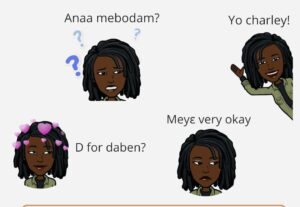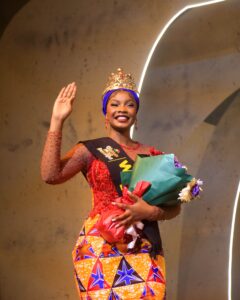
Ga People during the celebration of Homowo Festival. Photo Credit : King Tackie Teiko Tsuru II (Facebook).
The indigenes to the southeastern coast of Ghana – The Ga’s have a storied history marked by migration from the eastern part of present-day Ghana to their current settlement in the Greater Accra Region. The Ga Kingdom, established in the 16th century, played a crucial role in regional trade, politics, and culture.
Over the centuries, interactions with European traders, neighbouring ethnic groups, and colonial administrators have shaped the Ga language and its people. Today, Ga remains a stable indigenous language spoken predominantly in the Greater Accra Region.
Contrary to common assumptions, “Ga” is not an abbreviation of the region “Greater Accra”, but coincidentally shares its name. Ga is a Kwa language from the larger Niger-Congo family, similar to many Ghanaian languages. Besides Ghana, Ga speakers are also found in Togo and Nigeria, the latter being historically noted as the language’s country of origin. In Ghana, Ga is closely related to Dangme, with which it forms the Ga-Adangme ethnic group, and the two languages are mutually intelligible.
Native speakers of the Ga language are estimated to be over 745,000, according to the Ethnologue (25th Edition, 2022). The Ga indigenes are easily identified by their distinctive surnames, which includes: Lartey, Nortey, Aryee, Lamptey, Tetteh, Annan, Laryea, Ayitey, Okine, Bortey, Quarshie, Quaye, Ako, Ashong, and Kotei. Other common Ga names are: Ankrah, Tetteyfio, Quaynor, Clottey, Nai, Sowah, Odoi, Maale, Annang, Yemoh, and Abbey, as well as the notable titles for males and females Nii and Naa respectively.
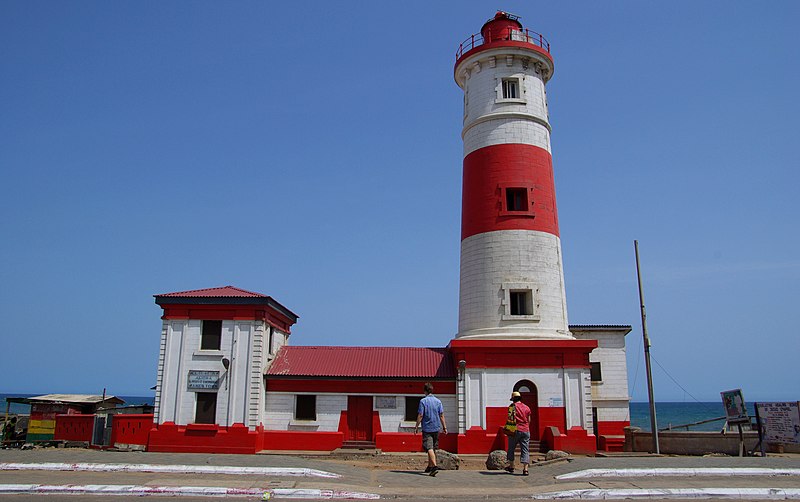
The Ga people inhabit several prominent towns in the Greater Accra Region. Accra, the capital city of Ghana, is the most notable Ga town, serving as the political and economic hub of the country. Other significant Ga towns include Osu, known for its nightlife and historic landmarks; La, which boasts beautiful beaches and a bustling market; and Teshie, famous for its annual Homowo Festival celebrations. James Town, another key Ga settlement, is renowned for its colonial architecture, fishing harbour, and cultural festivals. Nungua, with its rich fishing traditions and Ga Mashie, the traditional heartland of the Ga people, are central to preserving and promoting Ga heritage.
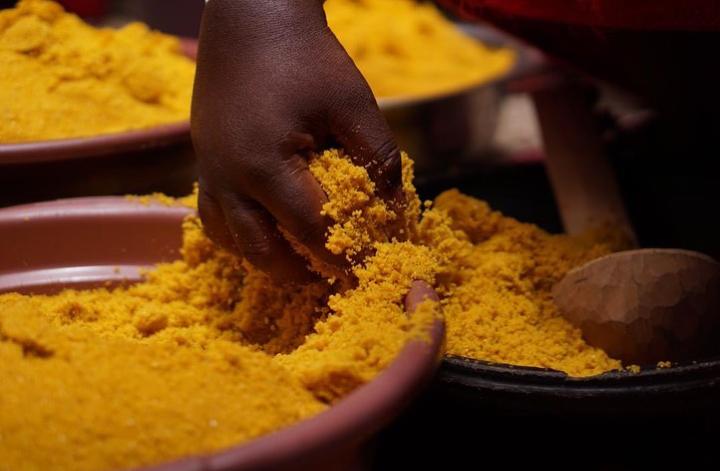
In Ghana, the Ga people celebrate the famous Homowo Festival annually, commemorating a significant period of famine in their history. The word “Homowo” translates to “hooting at hunger,” a reflection of the community’s triumph over adversity. The festival, which occurs during the harvest season, is marked by ceremonies, traditional dance, and the preparation of special foods like kpokpoi, a dish made from maize and palm oil. Homowo is a time for the Ga indigenes to honour their ancestors, give thanks for the bountiful harvest, and strengthen communal bonds. The festival also serves as a reminder of resilience and the importance of unity and perseverance in the face of hardship.
Since 2021, His Royal Majesty King Tackie Teiko Tsuru II has served as both the Ga Mantse and the President of the Ga Traditional Council, playing a crucial role in the governance and cultural preservation of the Ga people. Under his leadership, the council guides the community in maintaining its cultural traditions and managing traditional affairs.
The Ga language holds a significant educational language status in Ghana, being studied from the basic level through to the tertiary level. The language was first transcribed around 1764 by Christian Jacob Protten, the son of a Danish soldier and a Ga woman (Ofosu, 1997). Notably, Ga has no known dialects, which has facilitated the adoption of a standardized written form used in schools. This standardization has ensured consistency in teaching and learning the language across various educational institutions.
At the tertiary level, Ga is part of the Department of Ga – Dangme Education at the University of Education, Winneba – Ajumako Campus, where it is studied alongside Dangme. The program has been designed to support in-depth linguistic and cultural education, and since 2024, Ga can be studied up to the PhD level. This advancement underscores the academic importance and continued efforts to preserve and promote the Ga language within Ghana’s educational framework.
The digitalization of the Ga language has significantly contributed to its vitality and stability. There are numerous digital resources available, including radio and TV stations, notably, Obonu TV and FM, that broadcast in Ga, which help in promoting the language to a wider audience.
Additionally, the availability of the Ga Bible and Ga dictionary (https://glosbe.com/en/gaa) online ensures that speakers and learners have easy access to essential linguistic tools.
The presence of Ga literature and grammar resources in hardcopy formats further supports educational efforts. Moreover, the Ga language has a presence on Wikipedia, providing a platform for information and knowledge sharing globally. These digital advancements play a crucial role in preserving and promoting the Ga language in the modern era.
Author: Ebenezer Kobinah Offen
Editor: Ama Gyesiwaa Quansah
